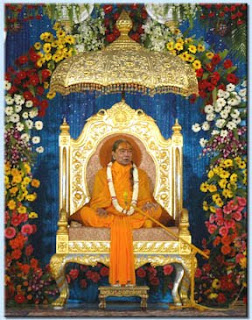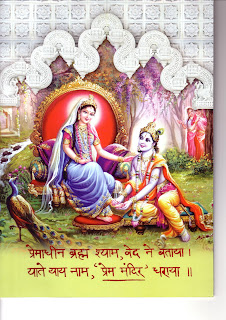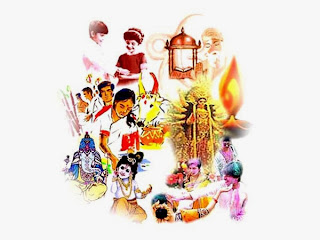God is Causelessly Merciful – Part 1

A Short lecture by Jagadguru Shri Kripalu Ji Maharaj
Great scholars and philosophers have pondered on how God is causelessly gracious. Causeless means to grace without a reason. In our world everyone is gracious with cause, no matter if it is our mother, father, son or neighbour. Gracing with cause is like a business transaction. We give something and in return we receive something from the other person.
For example, when we go to a store, we give money to the shopkeeper and in return he gives us the goods we require. He doesn’t give us a discount for that, rather he takes the full price. If the shopkeeper were asked to give something worth $2000 for $200, he would say, “Have you gone crazy? Get out of my store!” It is necessary to pay the full price. This condition exists everywhere in this world.
We did something for our mother, father, son, and so on. In return they graced us. This reciprocal business is found everywhere. As a result, people assume this also exists in the spiritual area. Those who practiced devotion and become Saints like Tulsi, Soor, Meera, Kabir, and others were graced by God. We didn’t practice God’s devotion but instead practiced devotion to the world. As a result, the consequence we received for this made us roam here and there in the 8.4 million life forms.
To receive a human birth is extremely rare. In the jungle there are so many creatures. They don’t have rooms, nor do they have any clothing or ready-made food, but still they continue to exist. They also have offspring and they experience all kinds of pains and suffering like we do. They also experience happiness as we do. A person eating a rasgulla (Indian sweet) experiences the same happiness that a cow receives by eating green grass. The quality of happiness in both these situations is comparable.
But what human beings have that is unique is a special power of knowledge. This power makes them capable of having their selfish desires fulfilled, even from animals! But, look at the poor condition of the wild animals, who have to move continuously from here to there just to get enough food, and in that, too, there is no certainty. In this, the less powerful creatures become prey for the more powerful animals. This is the scene all over the jungle. But,
Kabahunk karu karuna nar dehi,
deta isha binu hetu sanehi.
Saint Tulsidas says that the human body is precious and rare. This form is bestowed on a soul by God, who is causelessly gracious. Veda Vyas says that even the celestial gods, who are worshiped by humans, also long to receive a human body. They pray to God to receive a human form, which in comparison to their own, is extremely impure. A celestial body naturally exudes perfume and has a divine luster. It doesn’t age or produce sweat or any waste products. But still they desire a human body. Why? Because the freedom to perform action or karma is only bestowed on the human form. This is what makes us capable of attaining what we desire, divine happiness, and likewise what we don’t want, suffering. Producing consequences of action is possible only in the human body.
Again the same question arises. Is God gracious with cause? And what about those who give donations as charity? At least they must be causelessly gracious! No, they are not. They have faith in the Vedas and scriptures, which say that if you give charity in your present birth, you will receive ten times that in your next birth. You won’t wander here and there in search of a piece of bread. You will lead a comfortable life. This is the hidden, selfish desire of those who give charity.
For example, a mother selflessly nurtures her child for 20-25 years. What can a newborn baby do in return for its mother? But still the mother nurtures her baby with great difficulty. She seems to be selfless but actually she is not. She also has a hidden desire. Her desire may be that after her child becomes an adult and is earning money, that he will support and take care of her in her old age, and so on.
There is attachment and animosity everywhere. Just as children in a poor street sweeper’s house fight and quarrel over a few pennies, so do brothers in India’s richest families file court cases against each other over millions. Not only poor people are troubled, although the poor may think that everyone else is happy except themselves.
So then is God causelessly gracious? Yes, He is. How have people attained God realisation? Through devotion. What does devotion mean? What could we offer to God so that He would grant us the power to see Him? His form, knowledge and bliss are all divine. Even this material world belongs to Him. What could we offer to Him? Initially we have to practice devotion to attain Him, but how will we do this? With our mind – but our mind is also material, and whatever loving remembrance we practice will all be a product of our material imagination. So on what basis will He give us His divine vision?
There is nothing in the world that could be offered to God in exchange for being granted His divine vision. Our mind, intellect and body are all material. How could we pay for something divine with something material? Still, God has graced so many Saints with divine vision. How did that happen? This will be explained later.
Taken and published with permission from www.bhaktibliss.wordpress.com



Comments
Post a Comment